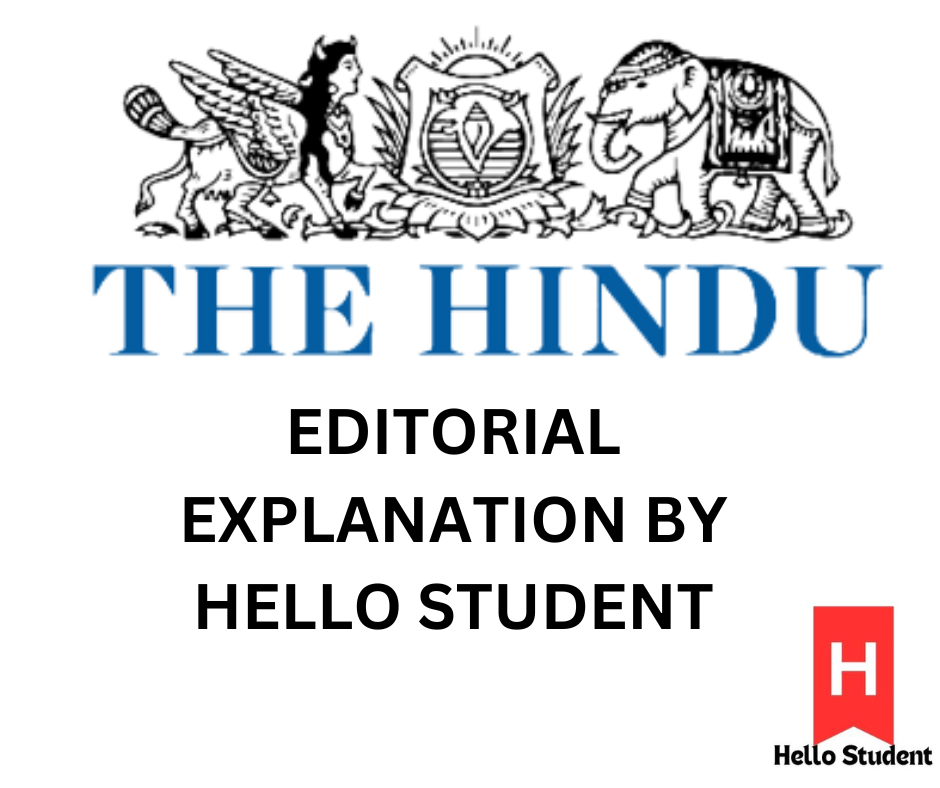Table of Contents
Introduction
The article published in the editorial section of The Hindu Newspaper talks about Pakistan Joining the UNSC and what might be its impact on India and how Pakistan itself use this position to strengthen its ties with other Muslim Countries and also other global issues such as the Issue of Palestine.
What Is UNSC?
The United Nations Security Council (UNSC) is a group within the United Nations that works to keep peace and security in the world. It helps prevent conflicts and resolves disputes between countries.
The UNSC has 15 members. Five of them are permanent members: the United States, Russia, China, France, and the United Kingdom. These countries have special powers, like the ability to veto, which means they can stop any decision they don’t agree with.
The other 10 members are non-permanent and are chosen for two years at a time. These members keep changing so that different countries get a chance to be part of the council.
The UNSC makes important decisions, like sending peacekeepers to troubled areas, imposing penalties on countries breaking international rules, or allowing military action if needed. Its main job is to make sure the world stays peaceful and safe.
Article Explanation
On January 1, 2025, Pakistan joined the United Nations Security Council (UNSC) as a non-permanent member for two years. This is the eighth time Pakistan has been elected to the council. The UNSC has 15 members in total. Five are permanent members (the United States, Russia, China, France, and the United Kingdom), while 10 are elected for two-year terms. Along with Pakistan, Denmark, Greece, Panama, and Somalia also joined for 2025-26. They replaced Ecuador, Japan, Malta, Mozambique, and Switzerland, whose terms ended in December 2024.
Pakistan’s entry is important because, for this term, half of the 10 non-permanent members are from Muslim-majority countries that belong to the Organisation of Islamic Cooperation (OIC). This could affect discussions in the UNSC, especially on issues like Palestine and Afghanistan. Pakistan is likely to focus on improving its relationship with Afghanistan, particularly with the Taliban government. It may also work with countries like China and Russia to help the Taliban gain more acceptance internationally.
Pakistan is expected to support the Palestinian cause during its term. It will likely work with other Muslim countries to push for peace in Gaza and to protect Palestinian rights. Peacekeeping is also expected to be an important priority for Pakistan, as it is one of the largest contributors of troops to United Nations peacekeeping missions.
At the same time, Pakistan is expected to use its position to criticize India. Pakistan has often accused India of terrorism, even though many Pakistan-based groups like Lashkar-e-Taiba (LeT) and Jaish-e-Mohammed (JeM) are recognized as terrorist organizations internationally. Pakistan might try to shift the focus to India, but India is prepared to counter such attempts.
The issue of Jammu and Kashmir (J&K) is also expected to come up. After India removed the special status of J&K in 2019, Pakistan has tried to bring the matter to the UNSC. However, most permanent members of the council are not interested in discussing it. India firmly believes that Pakistan-Occupied Kashmir (PoK) should be returned to India. With elections now held in J&K and a government in place, Pakistan may find it harder to gather support for its position.
Pakistan has also been raising the issue of Islamophobia, (discrimination against muslims) linking it to terrorism to gain support internationally. It has used this argument to target India and divert attention from its own issues. While India has successfully blocked such moves in the past, Pakistan may try again during its UNSC term.
Although India and Pakistan face common problems, such as climate change and economic challenges, they rarely work together on these issues. Pakistan’s focus on opposing India often prevents meaningful cooperation, even in areas where both countries have shared interests.
In summary, Pakistan is likely to focus on Afghanistan, Palestine, and its rivalry with India during its time in the UNSC. However, Pakistan faces challenges, such as limited international support and its own internal political and economic problems. While it may push its agenda strongly, it is unclear how successful it will be. India, meanwhile, is ready to counter any attempts by Pakistan to target it.
.
.
.
join our telegram channel for regular updates of The Hindu Epaper Editorial Explanation-https://t.me/Thehindueditorialexplanation
The Hindu Epaper Editorial Explanation given by Hello Student is only a supplementary reading to the original article to make things easier for the students.
In conclusion, preparing for exams in India can be a daunting task, but with the right strategies and resources, success is within reach. Remember, consistent study habits, effective time management, and a positive mindset are key to overcoming any academic challenge. Utilize the tips and techniques shared in this post to enhance your preparation and boost your confidence. Stay focused, stay motivated, and don’t forget to take care of your well-being. With dedication and perseverance, you can achieve your academic goals and pave the way for a bright future. Good luck!
The Editorial Page of The Hindu is an essential reading for all the students aspiring for UPSC, SSC, PCS, Judiciary etc or any other competitive government exams.
This may also be useful for exams like CUET UG and CUET PG, GATE, GMAT, GRE AND CAT
To read this article in Hindi –https://bhaarat.hellostudent.co.in/

